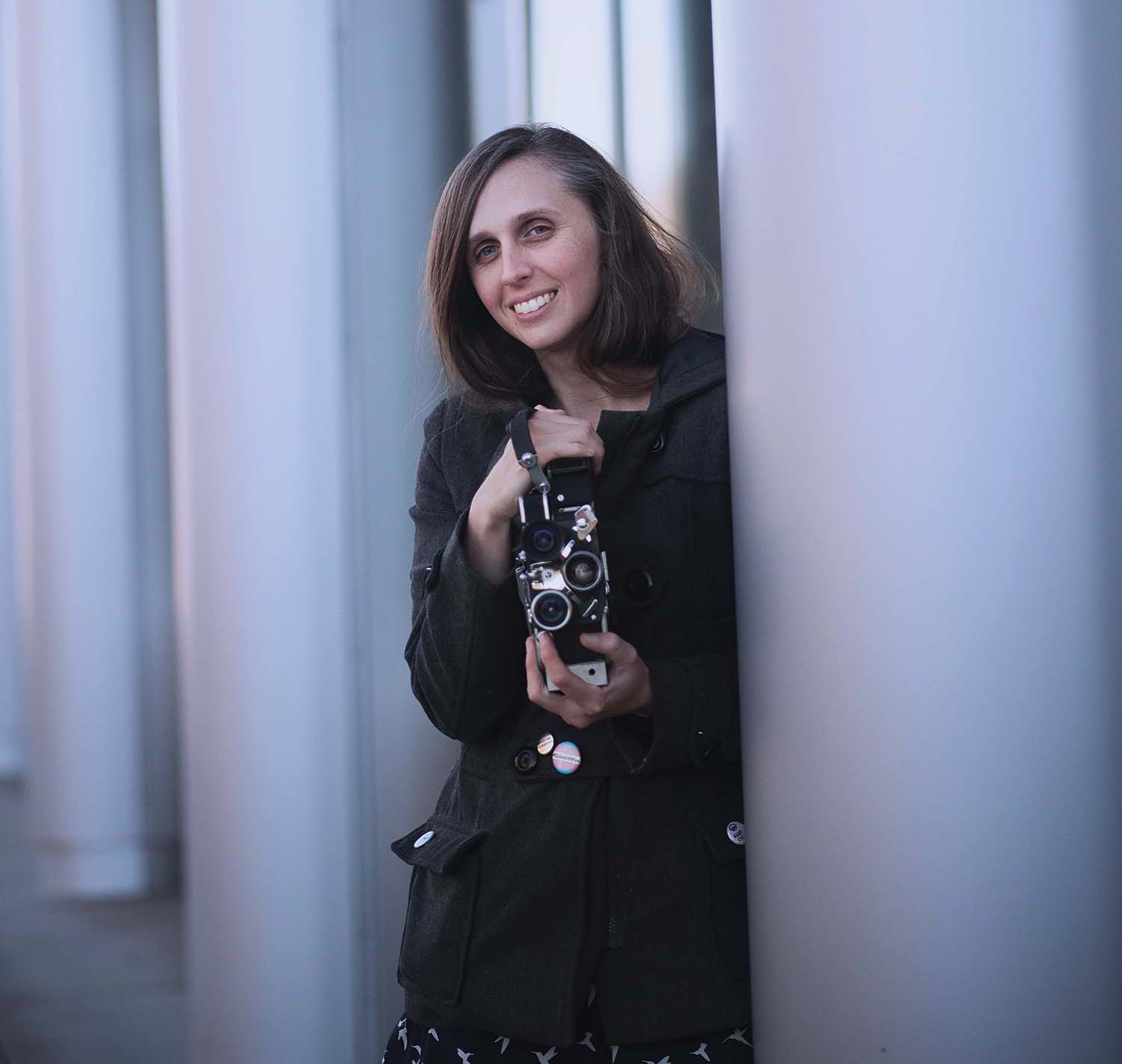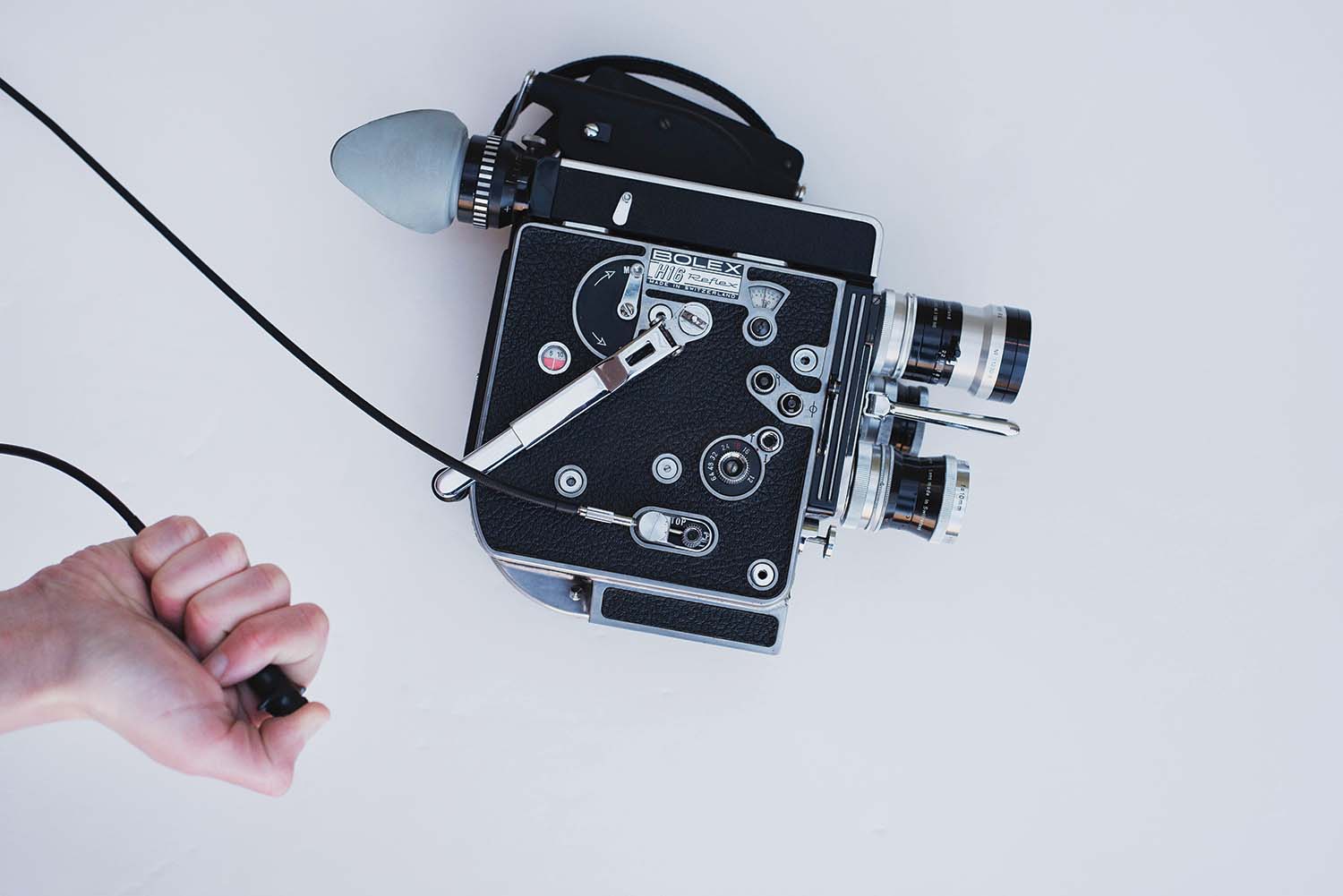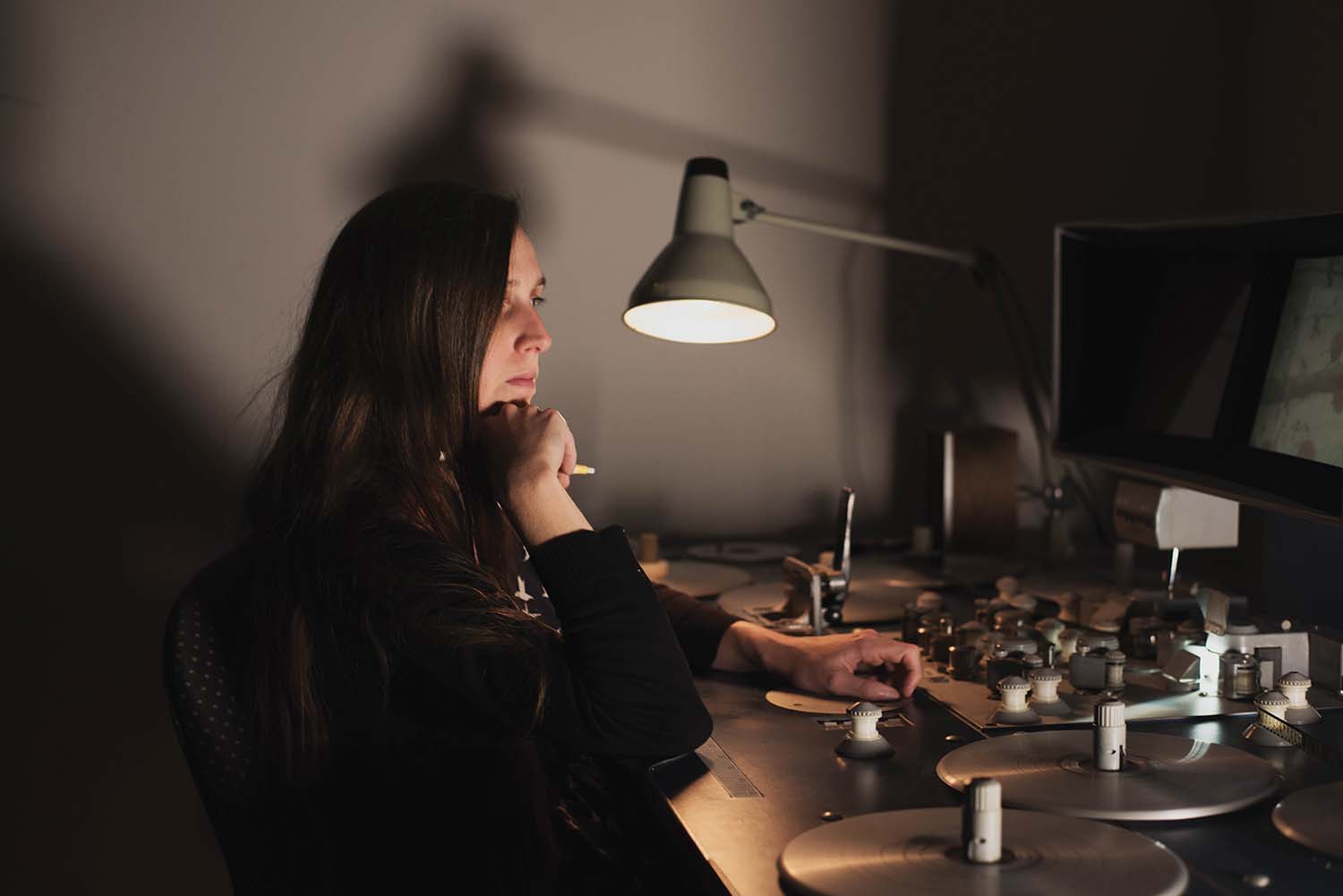
The video camera on Apple’s latest iPhone can record 30 frames per second in 4K resolution, continuously stabilize and focus the shot, and share the results almost instantly online. In contrast, Charlotte Taylor prefers shooting her work the old-fashioned way, on 16-mm film similar to that first introduced by Kodak in 1923, and developing many of the results by hand.
“I think I like making my life hard,” she says, half jokingly.
The filmmaker recognizes the extra effort inherent in her process, but she feels that the tactile nature of analog film is worth the hassle. “There’s something that feels right about being able to touch the thing that you’re working with,” Taylor says. “It’s calming and organic when I’m playing with the physical medium of film.”

Taylor’s background may also explain her predilection for a hands-on approach. She began making films in middle school, before digital cameras were widely available, then sharpened her skills through a Bachelor’s degree in film studies from the University of Florida and an MFA from the University of Iowa. While Taylor entered the movie world hoping to make music videos, she soon fell in love with the more avant-garde work her academic peers were producing.
Experimentation and physical film combine in Taylor’s work through techniques that highlight the presence of film as an object. She particularly enjoys camera-less animation, where she marks or manipulates actual frames of film by hand. The results emerge as striking arrays of abstract strokes and blobs, dozens of paintings per second shot through with the projector’s brilliant light.
Taylor maintains her connection to academic filmmaking as the head of the Film and Video Production Technology program at Blue Ridge Community College, but she’s also committed to making film accessible to the public through the nonprofit Mechanical Eye Microcinema. The group, which shares a space with the Street Creature puppet collective, hosts regular filmmaking workshops and screenings of work that doesn’t fit Asheville’s other theaters.

Mechanical Eye’s biggest success has been Fierce Flix, a summer filmmaking camp for girls and gender minorities. “When you’re in film schools, there are actually as many women as men, but only two percent of industry cinematographers are women — they just don’t get the jobs,” explains Taylor. “We wanted to inspire gender minorities in the real world.”
Through the weeklong program, participants learn the fundamentals of writing, directing, shooting, and editing movies as they create videos for Girls Rock Asheville, a similar youth camp for aspiring musicians. “There are very few times when I’ve been surrounded by all women and gender minorities trying to make something happen,” Taylor says. “It’s so special to me to see these kids empowering each other.”
By promoting gender diversity in film, Taylor creates a space for new perspectives to flicker to life on the big screen. “If you don’t make your movie, no one is going to make it,” she says. “No one else is going to see the world the way you can.”
Charlotte Taylor offers filmmaking workshops through Mechanical Eye Microcinema, 37 East Larchmont Road, Asheville. For more information, including registration dates for Fierce Flix summer camp for girls, visit mechanicaleyecinema.org or e-mail mechanicaleyemicrocinema@gmail.com.